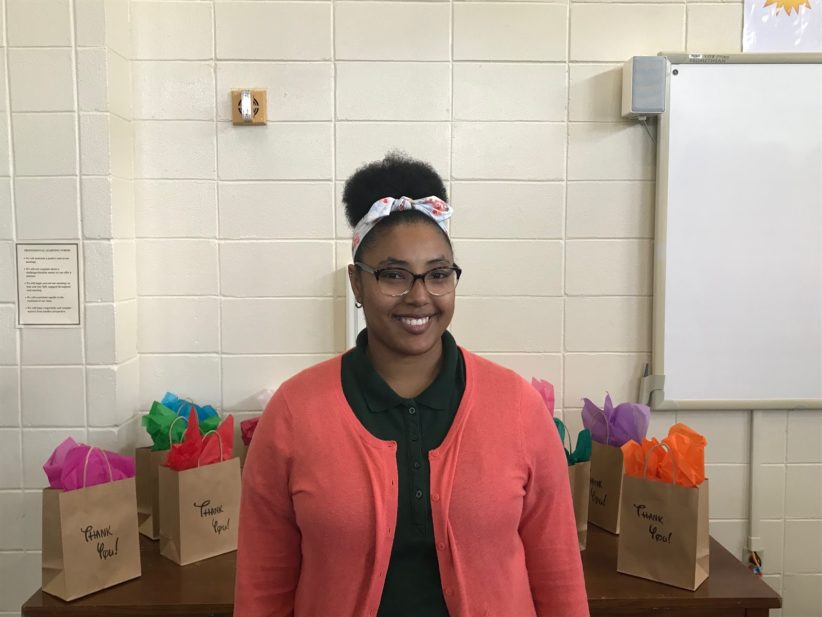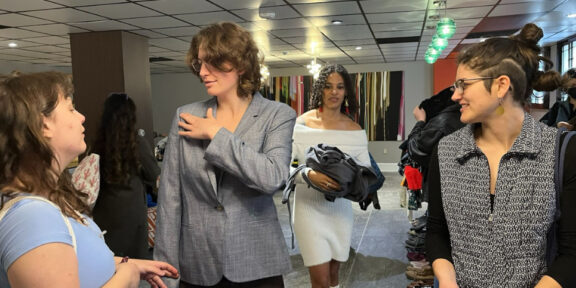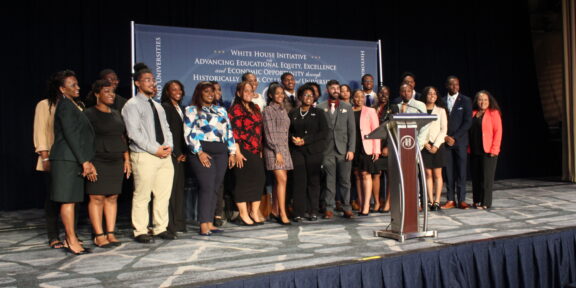The lights begin to flicker at 7:30 p.m. notifying Trelisa Christian, a librarian, that it is time to lock up the school. She makes the finishing touches on her lesson plan and gathers her things and quickly exits the building.
Christian, a native of Albany, Ga., is a librarian at Morningside Elementary by day and an author and illustrator by night. She is the author of five published children’s books. Christian released her first children’s book in 2012 titled “What Was I Made For?”, followed by several other books. She works with inner-city children six days out of the week. She is committed to lowering the literacy gap in Albany, Georgia.
A student’s ability to read on grade level by the end of 4th grade is a crucial indicator of future success in school and life. The Hill reported that the Annie E. Casey Foundation shows that 74 percent of students who tested below the 25th percentile in reading were from low-income families. Scores on the National Assessment of Educational Progress (NAEP), are considered “catastrophically low” for children of color.
Nationally, only 18 percent of black students and 21 percent of Hispanic students tested “above proficient” in reading by the end of 4th grade. The Washington Post stated that the word-gap concept points to deficits in children’s home lives as the reason for their academic disadvantage, rather than asking how poverty shapes those home lives. At least half of all students in more than 500 schools across Georgia come from low-income families, and they are a significant share of students in many others.
On May 3, 2018, 38 school districts were awarded Literacy for Learning, Living and Leading in Georgia grants to improve literacy across the state. The Dougherty County School System received 2.3 million dollars thanks to the grant.
Trelisa Christian was raised on a farm with her parents and her older brother. She initially fell in love with reading by watching her mom read books filled with words up and down the page and illustrations on the side. The book that she fell in love with at the age of eight was Brown Angels by Walter Dean Myers.
“I had never read poetry that dealt with being black. It’s very profound, but it is not so deep that kids don’t get it. They (children) know that it’s more than just a book” says Christian.
Before Christian worked at Morningside Elementary, she worked at the local library in Albany. “I didn’t necessarily relate to the kids in terms of the way they grew up and the kind of things they have to deal with at home,” says Christian. In a study entitled Child Poverty and Adult Success, Caroline Ratcliffe said, “Low-income children caught up in their parents’ economic struggles experience the impact through unmet needs, low-quality schools, and unstable circumstances.”
This didn’t stop Christian from quickly accepting the job and immediately falling in love with her elementary school students.
Christian quickly recognized many of her students were not reading on their grade level. As a result, she became in charge of the after-school program where she worked with children that are reading below their grade level. “I work the after-school program, and my main focus is literacy. I want these babies to know how to read and read with understanding not just read to read,” says Christian.
She realizes that teachers can’t focus on everything in the classroom and she feels that she must “focus on the things that teachers can’t always touch on.” Not only does she hit on the areas that most teachers can’t she also introduces creativity into the classroom. Many students view reading as dull and uninteresting, but Christian finds little ways to grab their attention. Students are very intrigued at the fact that Christian writes children’s books and many of her children want to be just like her.
Christian said, “they go through the experience of writing a book, and at the end, I publish it for them so they can have a little inspiration in their hands. They get excited about their work in their hands, published and polished, and sharing it with other people”.
The Harsh Reality
Dr. James T. Jackson, a Howard University education professor said,“You have to think about the economic issue where poor parents generally don’t display or exhibit for the kids what good reading behavior is because they tend to get their news from Facebook or from the tv and it’s rare they pick up a newspaper, a magazine, or books”.
“When you talk about the chaos and trauma that a lot of kids feel, their not emotionally prepared and mentally well enough to receive the instruction,” says Jackson.
A study entitled “Child Poverty and Adult Success” revealed that low-income children are affected by poverty — more than 9 in 10 well-off children complete high school but only 3 in 4 poor children.
Christian said, “It’s hard to leave home at home. They carry that stuff with them all day, and if you sit with them long enough, not even long enough, sometimes they come to school, and they are begging to tell somebody”.
She talks about how despite their adversities the kids remain “hungry, hungry to learn.” She notes how students come out of their shells every day and not only grow in the classroom but grow as a person. She exposes them to different types of people, foods, and languages.
Christian’s last comment was, “Somebody else may come in get my group and be like, ‘oh my God what’s wrong with them’ but they are still the perfect group for me.”





